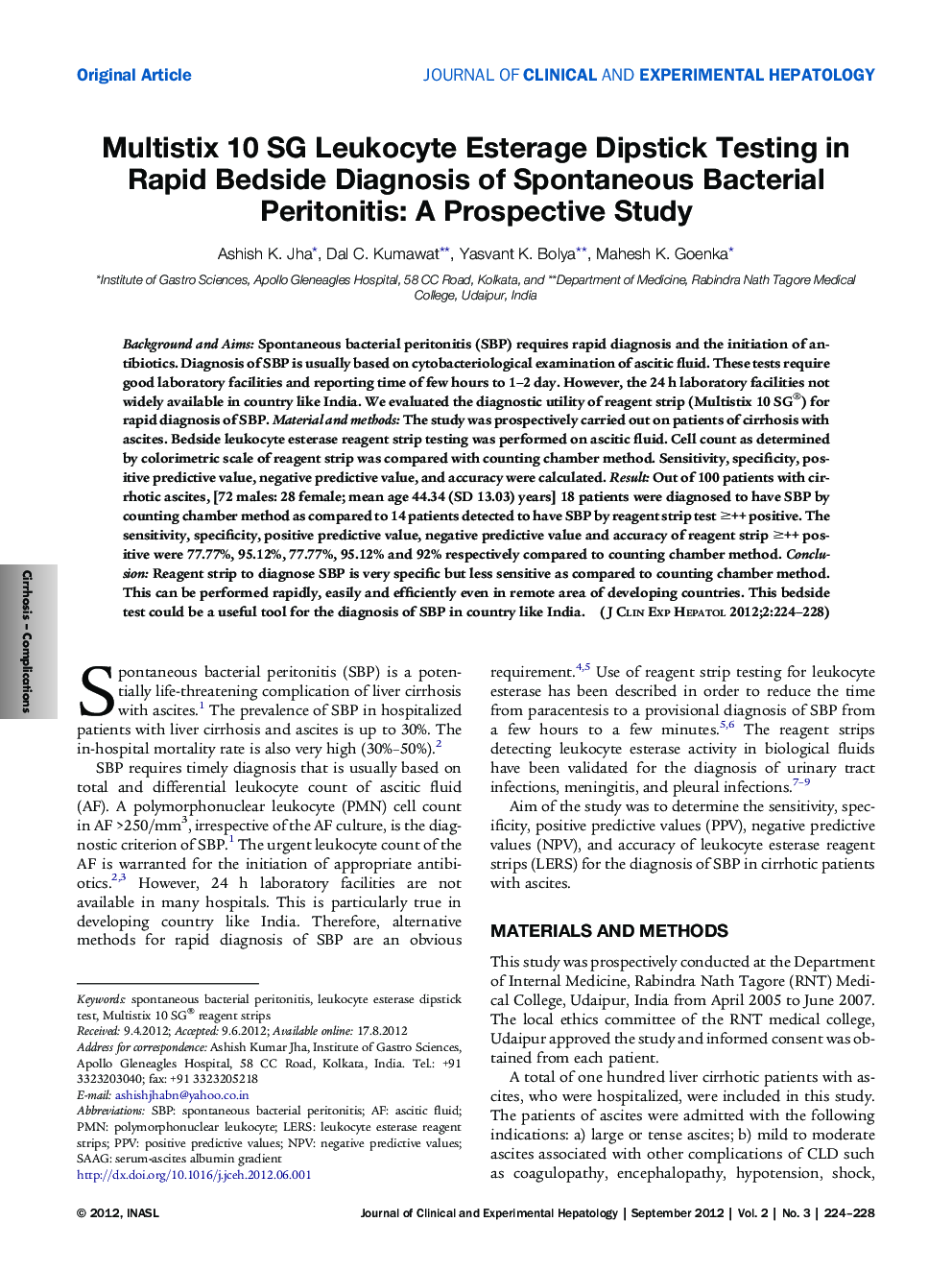| Article ID | Journal | Published Year | Pages | File Type |
|---|---|---|---|---|
| 3339231 | Journal of Clinical and Experimental Hepatology | 2012 | 5 Pages |
Background and AimsSpontaneous bacterial peritonitis (SBP) requires rapid diagnosis and the initiation of antibiotics. Diagnosis of SBP is usually based on cytobacteriological examination of ascitic fluid. These tests require good laboratory facilities and reporting time of few hours to 1–2 day. However, the 24 h laboratory facilities not widely available in country like India. We evaluated the diagnostic utility of reagent strip (Multistix 10 SG®) for rapid diagnosis of SBP.Material and methodsThe study was prospectively carried out on patients of cirrhosis with ascites. Bedside leukocyte esterase reagent strip testing was performed on ascitic fluid. Cell count as determined by colorimetric scale of reagent strip was compared with counting chamber method. Sensitivity, specificity, positive predictive value, negative predictive value, and accuracy were calculated.ResultOut of 100 patients with cirrhotic ascites, [72 males: 28 female; mean age 44.34 (SD 13.03) years] 18 patients were diagnosed to have SBP by counting chamber method as compared to 14 patients detected to have SBP by reagent strip test ≥++ positive. The sensitivity, specificity, positive predictive value, negative predictive value and accuracy of reagent strip ≥++ positive were 77.77%, 95.12%, 77.77%, 95.12% and 92% respectively compared to counting chamber method.ConclusionReagent strip to diagnose SBP is very specific but less sensitive as compared to counting chamber method. This can be performed rapidly, easily and efficiently even in remote area of developing countries. This bedside test could be a useful tool for the diagnosis of SBP in country like India.
